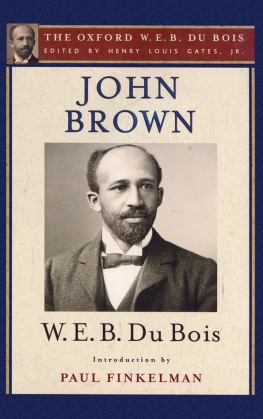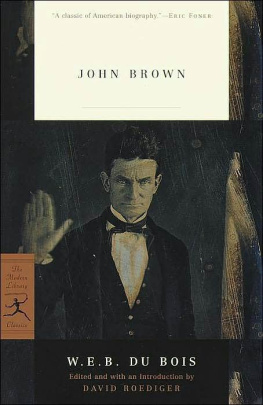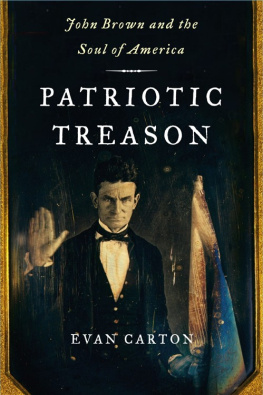Introduction
IN introducing myself to the Public, I wish to say that I was born in the City of Exeter, Devenshire, England. While still very young, I left home to serve as an apprentice to my Uncle, on the packet ship "England." I ran away after the third trip, and shipped for Havana, going then to Philadelphia; which ended my sea-faring life. From Philadelphia, I went to New York, where I remained a few months, then started for the West, going as far as Cincinnati. Leaving the latter place, to make my home among the Cherokees, the day after General Harrison, on his way to the Presidential Chair, left Pittsburgh on the new steamer called the "Ben Franklin." I remained with the Cherokees until May 1843, when I started for California, arriving in the winter of the same year.
Having read at various times, the history of California, and especially that of the City of San Francisco, and knowing the same or portions of the same to be misrepresented, owing, no doubt, to the fact, that most of the information contained therein, was received more from hearsay than actual experience, I conceived the idea of giving my readers, a true history of the city, as well as I can recollect it, after a lapse of forty years.
My book can hardly be called a history, but rather a book of reminiscences and incidents of early days, which, no doubt some of my friends will remember; and hoping that this book of mine will meet the eyes of many who were my friends in the early days of California, I remain Yours respectfully, John Henry Brown
Chapter One
IT WAS IN THE YEAR 1843, that in company with a party of traders, I left the Cherokee Nation, for the purpose of purchasing skins and furs of the Indians of the different tribes, and to barter for anything else that offered itself in the way of trade.
This was my third trip in the mountains, and the trading business being good that year, we secured many more furs than usual. When we reached Fort Bridger, we left what furs we had, and went farther north.
Here, we found winter coming on. The weather was very cold, as there had already been a slight fall of snow. This was in the month of October. We determined to return to Fort Bridger; but, finding it impossible, made for Fort Hall, belonging to the Hudson Bay company, where we hoped to remain during the winter.
Upon our arrival, however, Factor Grant, who had command of the Fort, informed us, that we could not stay there as there were already a larger number than could be accommodated; and, unless the weather moderated, they would be short of provisions themselves.
We remained several days at Fort Hall, where we succeeded in making some horse trades. During our stay, a person arrived by the name of Greenwood, who was accompanied by a boy, whom he called his son.
Upon asking him what he considered the best course for us to take, he advised us, by all means, to go to California; giving us all the necessary directions for doing so, and accompanying us himself, as far as Hooters Damm, where he left us, after repeating his directions as to our route, etc. The first few days we traveled very slowly, until we reached Steep Holler, where the weather moderated somewhat, and we made better time, the rest of the way. We reached our winter quarters, which were located upon the land, afterwards known as Johnson's Ranch, about the last of November. Game of all kinds was plentiful, beef of little market value, and as we had a good supply of parched corn and flour on hand, we were sufficiently provided with provisions to last all winter. We had been camping about three months, when one day, very much to our surprise, two persons came into camp, from whom we learned, that there was a whole settlement, at a place called Sutler's Fort, where we could obtain supplies or anything else that we required. It pleased us all to hear that we were so near a settlement, and we all wanted to go down to Sutter's Fort: but our Captain would not permit us to do so, and finally decided the matter by writing each man's name on a slip of paper, his own among the rest, and, placing the slips in a hat, remarked, "that the parties bearing the first six names drawn should go to the Fort, while the rest were to remain to guard the camp." When the result of the lottery was known, there was a general Hurrah! throughout the camp, and never before nor since, was such an excitement known, even at a Democratic Election. This was the first election, of any kind, that had ever been held in this section of the country, and there never was a happier lot of delegates sent to a Presidential Convention, than these six men, whose lot it was, to go to Sutter's Fort. All that was needed to make the jubilee complete was fireworks, but pistols and rifles answered the purpose very well.
The party were gone about three days; and on their return, brought all necessary supplies, and spoke in the highest terms of Captain Sutter and his treatment of them, he having refused to take any pay for the goods purchased, and even urged them to take more. We remained in camp until the month of April 1844, when we once more resumed our travels. We had only been out a few days, when we encountered very bad weather, in the shape of a snow-storm, which obliged us to camp for several days, thus retarding our progress somewhat. At this point in our journey, three of our party wished to return direct to California; but, as we were only fourteen in number, Captain Cody would not allow them to do so, it being necessary to retain sufficient help to aid in carrying the large quantity of furs home, that had been left stored at Fort Bridger.
However, one man by the name of Mackintosh went back. He was a Cherokee, and came from Grand River, in the Cherokee Nation.
The furs at Fort Bridger had been left in charge of a man belonging to St. Louis, by the name of Rubedure. There were three men in the mountains, bearing this name, all of whom were brothers. As soon as the weather moderated we resumed our journey to Fort Hall; but, do the best we could, our progress was slow, as the water in the streams was very high, and in some cases almost impassable. We remained three or four days at Fort Hall, then started once more for Fort Bridger. On this part of our route we made excellent time, travelling at the rate of forty miles per day. At Fort Bridger, we made a stay of ten days, then once more resumed our order of march; this time having Fort Laramie in view as our destination. These three places mentioned being the only houses or forts located in the large section of country between Missouri, California and Oregon.
When two weeks out, we met a large company of people en-route for Oregon, with whom we had a short conversation, in which we endeavored to persuade them to go to California, but without success.
Several days later, we came across another party, while in camp; and stayed with them over night, also
accepting their kind invitation to supper. After supper we built a large camp-fire, around which we all sat, and we told our new friends what we had seen of California, of the richness of its soil and the fine pastures in the winter season. They would scarcely believe all we told them, but seemed facinated with our stories nevertheless. They said they had heard of California before, but had no idea of the beauty and wealth of the country. Captain Cody, while at Sutter's Fort, had made minute inquiries about the country, and consequently could give them all the information they desired or needed. He also took many of the names of the party; and, as nearly as I can remember, some of them were as follows: Grandpa Murphy, and his two married sons, one of whom had a large family of children, and afterwards lived and died near the town of Santa Clara, being better known, as "Santa Clara Murphy."








